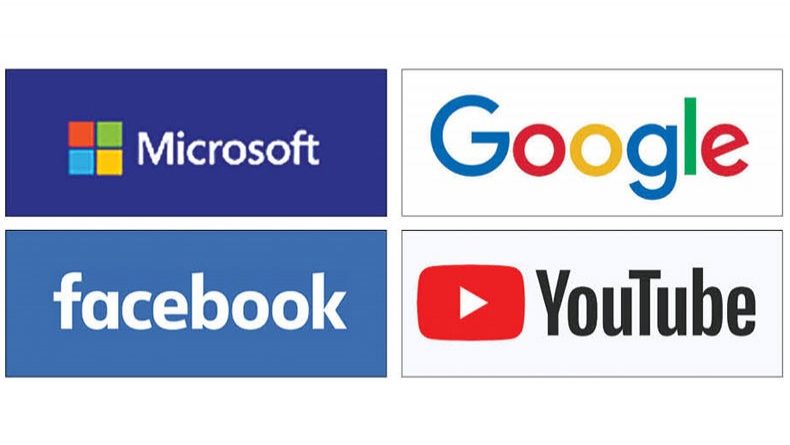NBR set to allow tech giants to obtain BINs for VAT payment
The National Board of Revenue is set to allow global technology companies which do not have offices in Bangladesh but run operations here to directly obtain business identification numbers on their own for payment of value-added tax.
The revenue board took a decision in principle to allow companies such as Facebook, Google, Youtube and Microsoft to obtain the BINs on their own after the companies had pointed out the difficulties in paying VAT through agents.
The companies, also known as non-resident companies as they do not have physical offices in Bangladesh, have been requesting the revenue board to allow them to avail the BINs on their own and pay VAT directly.
The NBR officials said that ensuring proper VAT collection from the companies and transparency of their business activities in the country were also considered while taking a positive decision on the issue.
The revenue board’s VAT wing in a meeting on February 18 agreed in principle to give VAT registration to non-resident companies under the Customs, Excise and VAT Commissionerate, Dhaka (South), they said.
The firms will be able to obtain the BINs using the postal code of related divisions and circles of Dhaka (South) VAT commissionerate as the companies are located outside Bangladesh’s geographical territory, they said.
The NBR’s VAT policy wing will soon issue a special order in this regard and make the required amendments to the VAT registration form and other rules and regulations, said a senior NBR official.
The revenue board in the budget for the current fiscal year 2019-2020 brought global technology companies, including social media giants and cloud computing service providers, operating in Bangladesh without their own offices under the VAT net and imposed 15 per cent VAT on their digital services from July, 2019.
According to the VAT law, the companies are supposed to obtain the VAT registration and pay the tax through appointment of local VAT agents accredited by the NBR.
So far, no company has registered for the BINs through agents and a number of companies, including Facebook, Google and Microsoft, have requested the NBR to allow them to obtain VAT registration on their own.
Global leading cloud computing service provider Amazon Web Services, however, has recently asked its Bangladeshi clients to update their accounts with the company by providing BINs as it will soon be required to collect 15 per cent VAT on sales of cloud services to customers which are not VAT registered.
According to the existing VAT rules, VAT agents will be responsible to submit VAT returns and pay VAT on behalf of their global clients.
The NBR will also make VAT agents jointly responsible along with the company for payment of all dues, including taxes, fines, penalties and interests, it said.
The NBR officials said that they were aware that large chartered accounting and consultancy firms had refrained from the availing the VAT agents’ licence, saying that they would not be able to comply with the provisions of the revenue board.
Global tech companies, like other multinational companies, will also not share their confidential information with the local VAT agents.
Ernst & Young, on behalf of their client Facebook Ireland Ltd, on January 28 in a letter to the NBR also raised the issues and sought clarifications.
FIL could not obtain VAT registration and appoint a VAT agent as none of the reputed international chartered accounting or consultancy firms had obtained the VAT agent certificate, it said.
‘In the absence of having registered for VAT payment, it is unlawful for FIL to collect VAT from VAT-unregistered customers in Bangladesh,’ the letter said.
Earlier, the FIL requested to allow non-residents to directly register for VAT payment with the NBR instead of registering through a VAT agent, it said, adding that the revenue board should also allow the company to make direct bank transfers or online payments of taxes to a NBR designated bank account from its foreign bank account.
Earlier, Microsoft Regional Sales Pte Ltd, Singapore and Google Asia Pacific Pte Ltd have also made similar requests to the revenue board. (Source: New Age)




